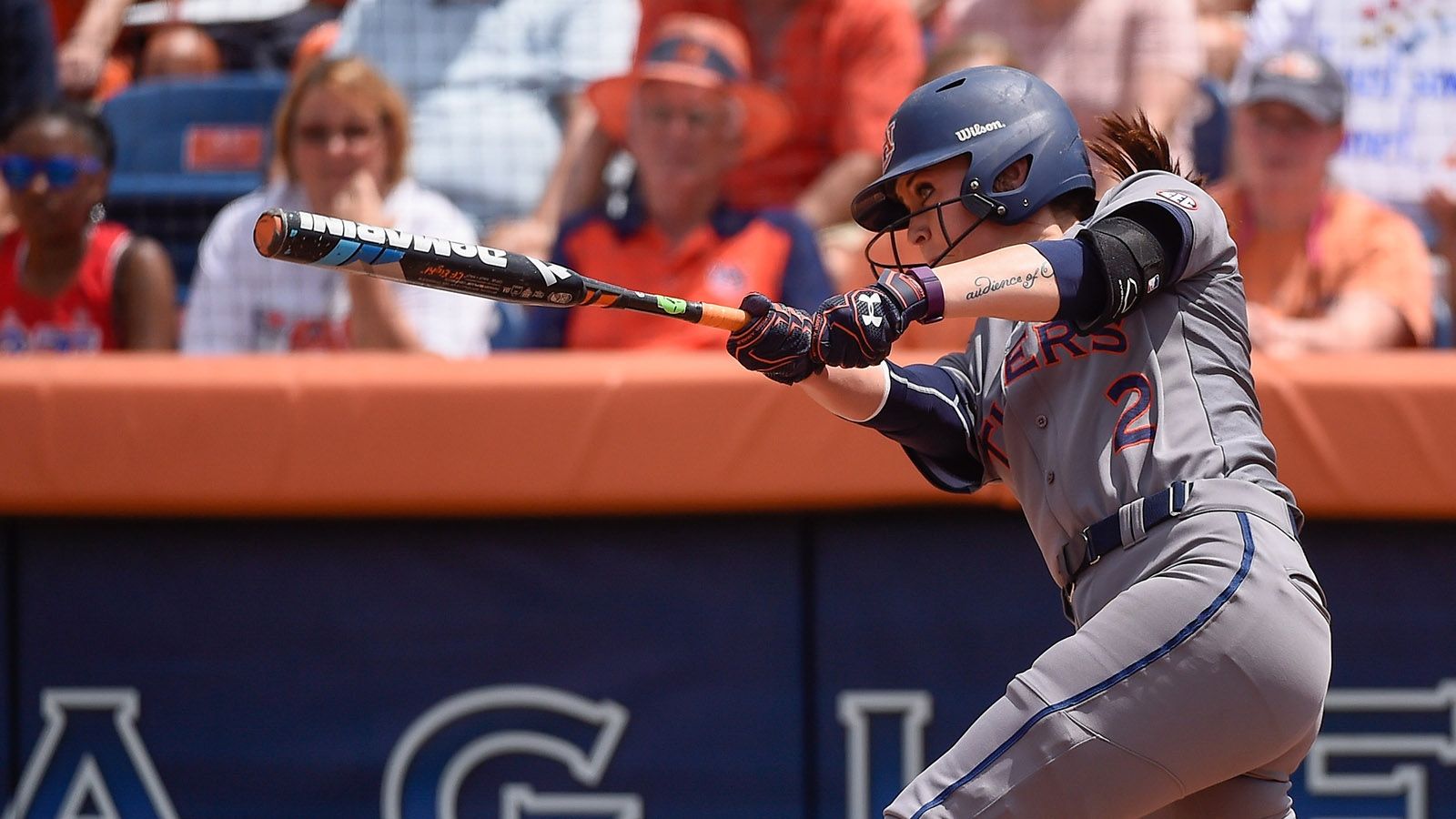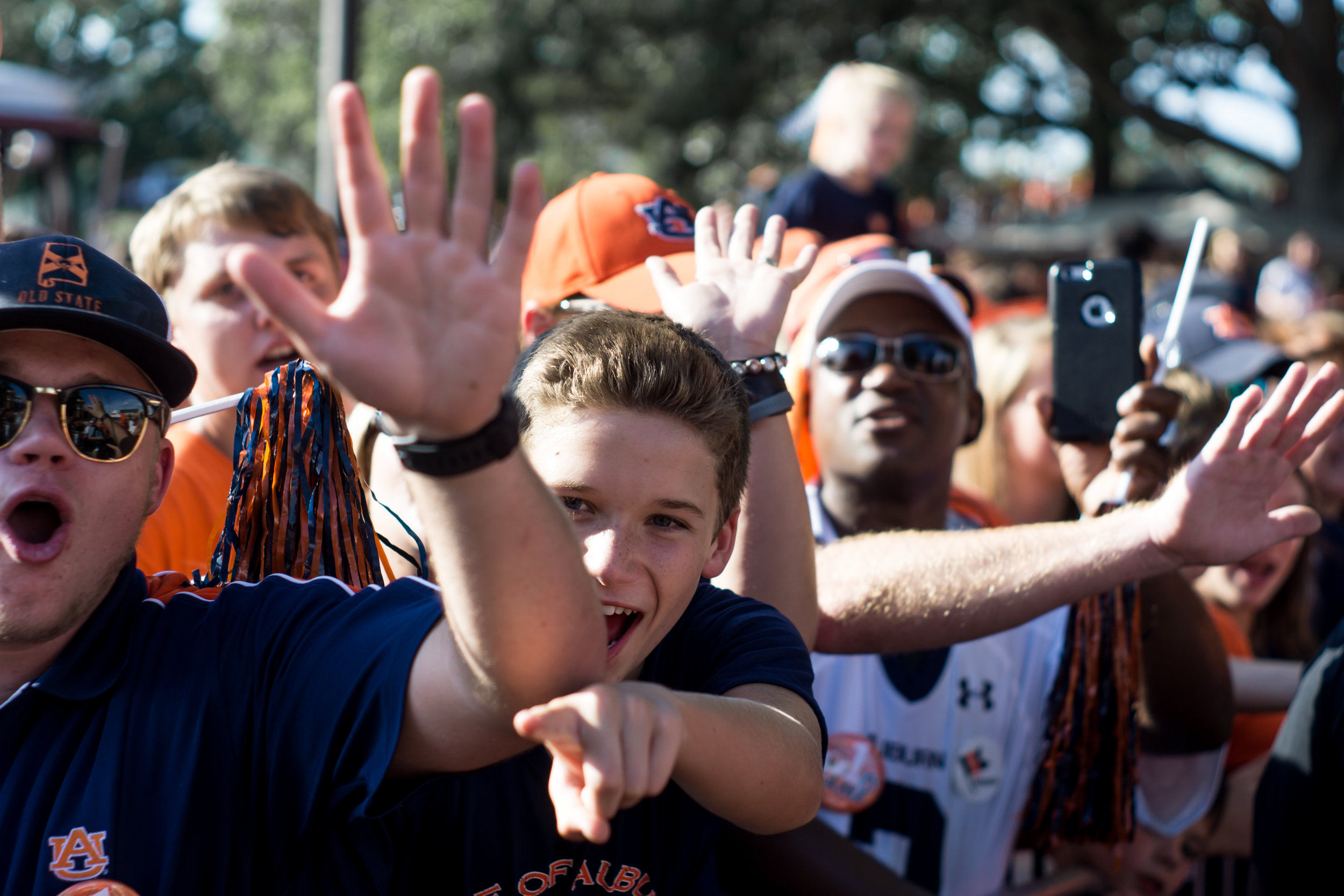Six Tips to Boost Muscle Recovery After a Workout

Ever wonder how collegiate athletes push their bodies so hard and manage to keep going?
Although we’re constantly running and lifting, we somehow manage to recover daily ― just in time for the next workout. How do we do it? Well, the Auburn University athletic trainers do an excellent job of helping our bodies recover, and it all starts in the pre-workout warm-up.
Pre-workout
Foam-roll
This is where we begin. Starting with calves and working our way up, we make sure to hit our hamstrings, quads, glutes and back. Ten rolls back and forth on each muscle will do the trick. Foam-rolling is similar to a massage; it stimulates blood flow in the muscles. By increasing our blood flow, we boost the range of motion of our muscles, which helps prevent injuries.
Also, if you've never used a foam roller before, here's a helpful video to help you get started.
Stretch
Contrary to popular belief, the most recent research shows that not only is basic static stretching before a workout or run not enough, but it may actually heighten your chance of injury ― when not paired with foam-rolling. Stretching relaxed muscles already stimulated by blood flow is the smartest way to go. As in foam-rolling, start with your calves and work your way up, making sure to stretch your hamstrings, quadriceps, hip-flexors, glutes, and back, as well as your chest, biceps and triceps.
Move
It’s time to get moving. To finish warming up, we need to get your heart pumping, so it’s on to the dynamic warm-up. Now that your muscles are loose, they need to prepare for the movements that will be performed in your workout or activity. Making sure your warm-up fits your workout is important. Popular stretches for Auburn University athletes include full body shuffles, walking hamstring kicks, lunges, walking side lunges, the “Spiderman,” high-knees and butt-kicks, and knee-pull to quad-pull, just to name a few. Repetition is key; try repeating each movement 6-10 times each.
Now your heart rate is up, your muscles are warm and loose, and you are ready to begin your workout. I know this all sounds like a lot, but it shouldn’t take you more than 25-30 minutes. If that scares you off a bit, remember that spending a little extra time now is definitely worth avoiding the pain of having to work out later while feeling exhausted and sore.
Post-workout
Stretch
Yeah, you have to stretch again. After a grueling lift or run, the last thing I want to do is sit around for another 10-15 minutes to stretch out my muscles. It couldn’t be that important anyway … right?
Wrong.
Cool-down stretches are critical for muscle recovery. First off, bringing your heart rate down after an intense workout is important. Breathing deeply while you stretch will lower your heart rate, and it relieves stress and tension in your muscles. After a workout, stretching helps your muscles relax and helps ease your fatigue. Plus, stretching has long-term health benefits such as keeping your muscles youthful and limiting joint pain as you age.
Fuel
Many people know fueling your body after a workout is vital for muscle recovery, but which foods should you eat? Whether your goal is to gain mass, to lose weight, or even to tone muscle, the answer is still the same: foods that are high in protein. During workouts, your muscles are breaking down because your muscle fibers must tear in order to build. Protein heals your muscles.
Ideally, eating 45 minutes to an hour after a workout is best for your muscles. Foods like Greek yogurt, sandwich wraps and grilled chicken are great choices. Also, consider adding fruits like bananas, pineapples and blueberries to your post-workout meal. Bananas are high in potassium, which helps your muscles recover, and pineapples and blueberries have anti-inflammatory properties. Chocolate milk, surprisingly enough, is a solid source of carbs and protein, so consider adding it to the mix!
Avoid eating greasy or salty foods right after a workout. I personally love them; after all, who doesn’t enjoy a juicy cheeseburger or a bag of potato chips? But eating them right after a workout can slow digestion and lower your potassium levels, which will definitely hinder muscle recovery.
Rest
A good night’s sleep is important to muscle recovery. Not only is your body burning fat while you sleep, but it’s also building muscle and repairing damaged tissue. Plus, the sleep boost will help you feel more refreshed and energized for tomorrow’s workout.
Be well, Auburn.
Photography: Jack P.
Haley grew up in the small town of Dunnellon, Florida, and she’s majoring in media studies with a minor in political science. A member of the Auburn University softball team, Haley spends most of her time practicing and working in the community with her teammates.
She loves iced coffee, tough workouts, and binge-watching Netflix on the weekends.
Born into a large family with five siblings, Haley enjoys large get-togethers and making people laugh. She has a secret passion for cooking and is always looking for new recipes and fun things to try in the kitchen.





